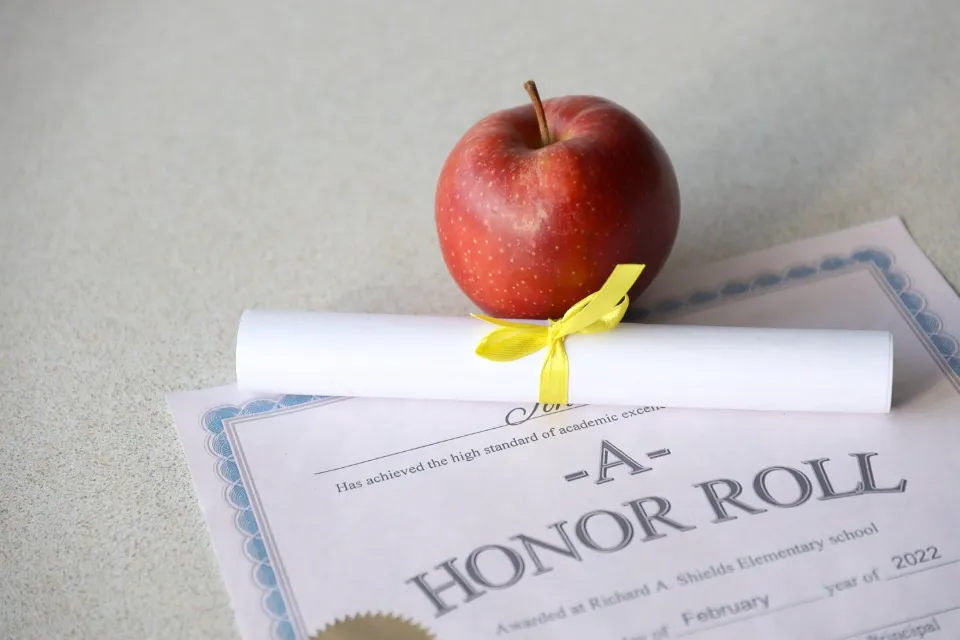
Pros and Cons of Honors Classes in High School: Whether to Take?
This blog will explain the pros and cons of honors classes in high school, helping you decide whether to take honor classes in high school.
Honors courses in high school are frequently designed for students with advanced academic standing and are generally thought of as being more difficult than regular courses. But are they worthwhile?
In this blog, we’ll discuss the fundamentals of honors classes, whether they’re weighted, and how to make the best choice for you.
Pros of Taking Honors Classes in High School
There are several specific benefits to taking honors classes in high school. Some main benefits include an improved high school resume and better academic skills.
A Rise in Grade Point Average (GPA)
An H, which is the letter after an A on the scale of grades, is given for a grade of 97% or higher in an honors course. It is simpler to improve your overall GPA with an H than with an A because it raises it by 1.0. Read More: What is the Hardest Grade in High School?
An H improves your GPA, so getting one is advantageous. A good grade helps you with the Caliper Assessment Preparation Course and raises your self-esteem by showing that you worked hard to earn it.

Builds Academic Strengths
Colleges see students who enroll in more honors and advanced placement programs as willing to put in the time and effort necessary to succeed in a challenging class, thereby boosting their academic strengths.
You’ll have an advantage over your peers who didn’t take as many AP/Honors classes if your transcript shows that you took numerous honors classes.
Good Peers
Being surrounded by classmates who share your enthusiasm for learning and success is a benefit of enrolling in AP/Honors classes. Because you will be surrounded by other students who are genuinely concerned about their grades, you will be more motivated to study and earn good grades.
Excellence
Colleges are very interested in recruiting students who take honors courses. It demonstrates that you are a hardworking student who can handle the challenges of college life.
Improved ACT and SAT Scores
SAT is an acronym that stands for Standardized Aptitude Test. After graduating from high school, it is an exam that students must pass in order to be admitted to a college, particularly in the United States and Canada.
Contrarily, the ACT is accepted by the majority of US colleges. Most schools recognize it as an international exam. You have more influence and can choose from a wider range of schools if you have high ACT scores. The ACT or SAT scores of students who enroll in honors courses frequently go up.

College Readiness
Being a college class, the pace and level of difficulty are higher than in previous courses. You’ll have a better sense of what to expect in college classes (College readiness), so you won’t be left behind as your peers struggle through their first year.
College Credit is Available
You must receive a 3, 4, or 5 on the honors exam to receive college credit, which means you’ll have one fewer class to finish and less money to spend on college. Learn What Is A High School Credit?
Cons of Taking Honors Classes in High School
You should weigh the advantages and disadvantages of honors courses before choosing one.
More Homework
Due to the amount of material they cover, honors classes have a heavier workload than regular classes. On some evenings when there are only two classes, you would go home and complete five hours of homework. Nevertheless, there is a distinction to be made.
As a student in an honors class, slacking off and being lazy are not permitted. Doing your homework will prevent you from falling behind in class.
Overloaded Calendar
You will be involved in extracurricular activities and honors classes during the school year, making it difficult to find time for anything else. Being forced to complete schoolwork quickly after a sporting event and occasionally staying up late to complete it can be stressful.

Enrolling in honors programs may not be the greatest option if you are already having difficulty in school. Avoid enrolling in honors classes if you think you won’t be able to keep up with the work or if you don’t want to put in the necessary effort.
Very Difficult Exam
Because the test will be much harder in honors classes than in her regular classes, you would need to study a lot more. It takes a lot of time to prepare for honors exams, but the grades are well worth it.
What Are High School Honors Classes?
They usually go over the same material as regular classes, but more quickly and in-depth. Students can better prepare for the demands of college coursework by enrolling in honors classes, which is their main advantage.
As an illustration, an honors English course might study the same books as a regular English course. However, it might go into greater depth regarding literary devices and themes and demand more critical thought and analysis.
In a similar vein, while honors math classes may cover the same topics as regular math classes, they may also delve deeper and cover more difficult material.
In addition to covering more challenging material, honors classes often move at a faster pace than regular classes. Less time for review and fewer opportunities for students to ask questions or get clarification on difficult concepts can result from this.
While it can be challenging for students who need more time to process new information, it can be advantageous for academically gifted students who thrive in a fast-paced learning environment.
Furthermore, when selecting applicants for admission, many colleges and universities favor high school students who have taken honors courses.

In general, honors classes are designed to give more demanding academic experiences for academically advanced students looking to be challenged. They are often geared towards students preparing for college and aim to provide a preview of the level of rigor students will encounter in college coursework.
What is the Impact of Honor Classes on High School Life?
Honors classes can impact a student’s overall high school experience in both positive and negative ways. Honors courses, on the plus side, can give students a more demanding and stimulating academic experience.
The more challenging curriculum and pace of honors classes can help students develop critical thinking and analytical skills, improve their grades, and increase their chances of getting into college.
Conversely, honors classes can also be more demanding and time-consuming than regular classes. It can be challenging for students to juggle other obligations because of the workload. Extracurricular pursuits and part-time employment may fall under this category.
Since these classes are harder than regular classes, students may be more likely to get bad grades if they are unable to keep up with the material. A student’s grade point average may suffer as a result, which will make it more challenging for them to get into college.
Honors classes can cause burnout due to the increased workload and stress. which is a chronically stressed-out condition characterized by physical, mental, and emotional exhaustion.
Not every student is qualified to enroll in honors courses; some students may find the intense pace and higher standards of honors classes to be overwhelming and the courses may not be a good fit for them.
Should You Sign Up for Honors Classes?

It is entirely up to you whether or not you enroll in honors classes (as long as you meet the requirements)! Most guidance counselors will understand your capabilities and advise you on the right path for your education. But if you’re still undecided, here are some actions to take and queries to ask to guide you.
- Compare the advantages and disadvantages listed above.
- Despite having a higher grade, are your current classes boring to you? This might imply that they aren’t interesting enough and that your schedule needs to include something a little more difficult.
- In advanced classes, do you already find it difficult? If you’re finding advanced material already too difficult, it may benefit your overall grade to explore other options that aren’t honors classes.
- Discuss your options, the workload, and other issues with your guidance counselor.
- Do you intend to submit an application to a selective college? These schools are looking for students that are different, capable, and mature. You can stand out from the competition by taking advanced classes.
- If you’re interested in taking honors classes, talk to your current teachers in those subjects. They can advise you on your chances of succeeding in the course and offer preparation advice.
Honor classes will be a challenge, even for advanced students. Make sure to speak with your guidance counselor and teacher as soon as you can if you decide to enroll in honors classes and discover after a few weeks that you are really struggling. They can give you tips on how to manage the workload, but they can also, as a last resort, reschedule your classes if they believe the honor class will cause more harm than good.
But it’s important to have these discussions quickly – waiting too long can mean there is little they can do in regard to your schedule, and you can easily fall behind in your classes. Recognizing your strengths and weaknesses is perfectly acceptable!
Conclusion: Whether to Take Honors Classes in High School?
In conclusion, it is up to each person to decide whether or not taking honors classes in high school is worthwhile. Both in high school and in college, taking honors classes can benefit a student greatly. Before choosing one of these courses, it’s crucial to weigh the advantages and disadvantages. However, keep in mind that they aren’t meant to be stressful.
They are intended to engage and challenge advanced students. The benefits of these classes can definitely outweigh the drawbacks.


